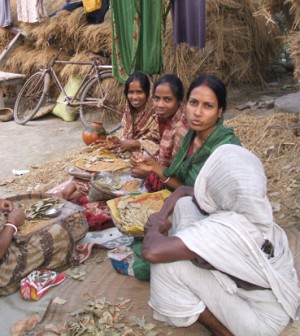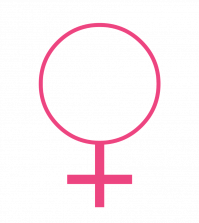- Finding Unshakable Power in a World That Wants to Pull Us ApartPosted 6 months ago
- What could a Donald Trump presidency mean for abortion rights?Posted 6 months ago
- Financial Empowerment: The Game-Changer for Women in Relationships and BeyondPosted 7 months ago
- Mental Health and Wellbeing Tips During and After PregnancyPosted 7 months ago
- Fall Renewal: Step outside your Comfort Zone & Experience Vibrant ChangePosted 7 months ago
- Women Entrepreneurs Need Support SystemsPosted 7 months ago
UN Women launches global call for gender equality

(New York, 26 June) Drawing global attention to the persistent factors that block the achievement of gender equality, women’s rights and women’s empowerment worldwide, UN Women has launched a call to galvanize the gender equality agenda and ensure concrete action that will enable women and girls to truly live as equal citizens everywhere. In a position paper released last week, UN Women offers clear direction on policies that are necessary to usher meaningful and lasting transformation, so that women’s and girls’ rights can be universally secured.
The call for a transformative framework to achieve gender equality, women’s rights and women’s empowerment comes in the midst of a global conversation about the legacy and next steps after theMillennium Development Goals (MDGs) — eight internationally agreed goals with a timeline of 2015, which have been the blueprint for action to reduce poverty since the year 2000. Intergovernmental and UN-led processes are currently under way to inform and design a post-2015 development agenda and Sustainable Development Goals (SDGs).
With the MDGs set to expire in 2015, studies show that the goals have spurred significant progress, but yielded uneven results, including continuing lack of progress on reducing maternal mortality. About 800 women die every day due to childbirth and other pregnancy-related complications. Other gaps include: persistent gender wage gaps, with women being paid 10 to 30 per cent less than men; low representation in parliaments, with only 1 in 5 legislators being women; vulnerable employment, with nearly two-thirds of women largely outside the protection of the law in 2011; and violence against women and girls, with nearly in 1 in 3 women impacted during their lifetimes.
UN Women’s position paper emphasizes that the post-2015 agenda must build on the achievements of the MDGs, while avoiding their shortcomings. It underlines that for the realization of women’s rights, it is critical to address the structural causes of gender inequality, such as the pandemic of violence against women, unpaid care work, limited control over assets and property, and unequal participation in private and public decision-making.
“Momentum is growing for gender equality and women’s empowerment and, in recent weeks, we have seen increasing support for a goal on gender equality, women’s rights and women’s empowerment in the post-2015 development agenda,” said Lakshmi Puri, Acting Head of UN Women. “UN Women is putting forward this paper as a contribution to this discussion, both as a synthesis and a starting point for the mobilization needed to shape a new generation of development goals. At the heart of our approach is the need to address structural causes of gender discrimination and violence against women that continue to impede progress for women and girls around the world. This is why we call for a comprehensive stand-alone goal, as well as gender mainstreaming in all areas of the new framework”, she added.
UN Women is proposing a stand-alone gender equality goal grounded in human rights with an integrated approach that addresses three critical target areas:
– Freedom from violence against women and girls. Concrete actions to eliminate the debilitating fear and experience of violence.
– Gender equality in the distribution of capabilities – knowledge, good health, sexual and reproductive health and reproductive rights of women and adolescent girls; and gender equality in access to resources and opportunities, including land, decent work and equal pay to build women’s economic and social security.
– Gender equality in decision-making power in public and private institutions, in national parliaments and local councils, the media and civil society, in the management and governance of firms, and in families and communities.
Along with the stand-alone goal, UN Women is also calling for integration of gender equality concerns throughout the other priority areas of the post-2015 development agenda.
A key feature of the MDGs was the inclusion of targets and indicators to monitor performance. Echoing the broad consensus that this feature needs to be retained and strengthened in the new framework, UN Women proposes indicators under each target to monitor and evaluate change. These are based on internationally agreed standards and have been chosen on the basis of their relevance, methodological soundness and measurability.
UN Women is also hosting an online discussion to get your feedback and ideas for making sure that a stand-alone gender equality goal is included in the post-2015 agenda. Join the conversation atwww.worldwewant2015.org/node/357447.






